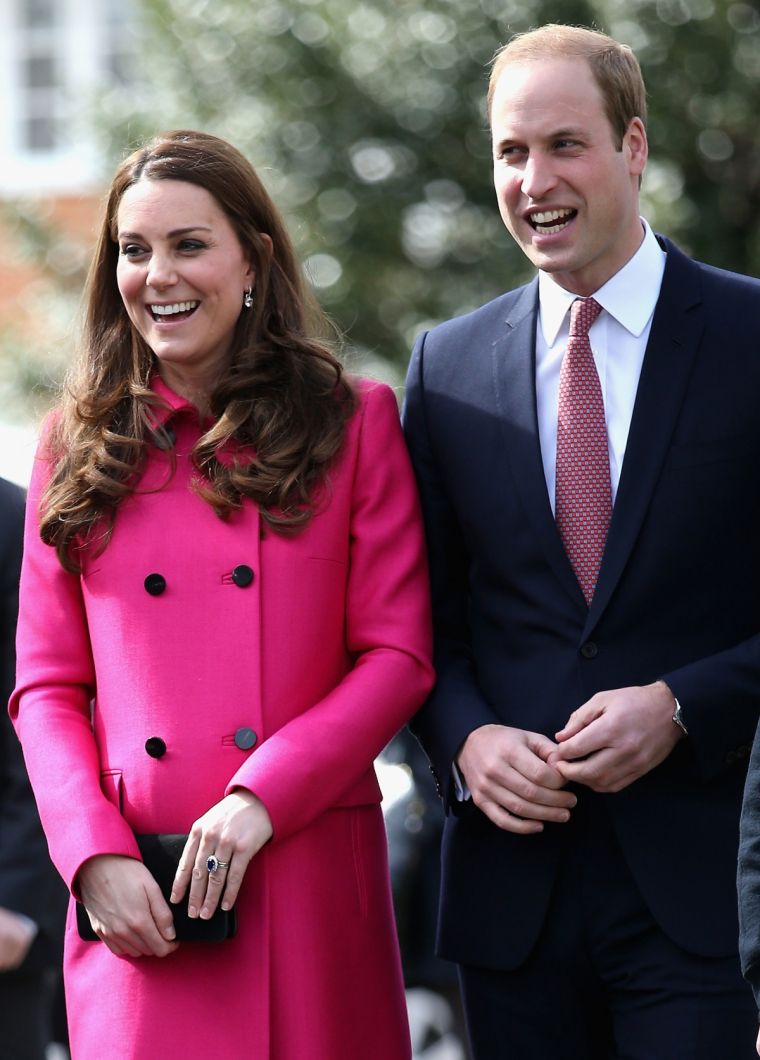Could you go to Pippa Middleton's wedding, even if not invited?

Celebrity weddings including that of Pippa Middleton on May 20 could be attended by uninvited members of the public, thanks to guidelines newly published by the Church of England.
The guidelines state that 'a marriage is a public ceremony which at the least all parishioners are entitled to attend'.
The Telegraph pointed out that this could mean strangers rubbing shoulders with Miss Middleton's sister and brother-in-law, the Duchess and Duke of Cambridge during her wedding to James Matthews, a hedge fund manager and heir to a large Scottish property, at the Berkshire church of St Mark's.
The rules mean that all residents of the parish of Englefield, which surrounds St Mark's Church have the right, in theory, to attend the ceremony.
Andrew House, the chairman of the parish council for the neighbouring village of Bradfield, where Pippa was born and the Duchess of Cambridge, Kate spent her early years, told the paper: 'It's a rather nice thought that they [parishioners] might be able to attend. I'm sure there will be interest.'
The document, entitled Celebrity Marriages in Anglican Cathedrals and Churches and produced by the Church of England Synod's legal advisory commission, members of the public are entitled to attend 'as long as there is available seating or standing room unless a genuine question of safety or security arises'.
While the document states the rules do not need to be followed if 'a genuine question of safety or security arises', this is a health and safety provision, only to be enforced if the church becomes dangerously overcrowded, The Telegraph reported.
Stephen Borton, the chief clerk of the faculty office of the Archbishop of Canterbury, said: 'The document is pretty clear. Parishioners and those on the electoral roll have the absolute right to attend services of public worship, and they can't be denied access. Marriages are not a private event, they are public.
'It is a parish church and if any of the parishioners or any of those on the electoral roll wished to attend, they could not legally be refused. That of course does not extend to those from outside, such as the press.'
House added: 'Some people will no doubt want to wish the couple well, especially those Englefield parishioners who knew the Middleton family from when they lived in the area. Kate went to Brownies here and there are still people in the area who remember her.'
A representative for the wedding said: 'For security reasons we are making no comments on the private details of this wedding (being held on private property).'
However, although St Mark's lies on the private Englefield Estate, which has been owned by the family of Conservative MP Richard Benyon since the 17th century, it is understood that parishioners would still have the right to attend what is a public service.
Church of England lawyers said that where parishioners need to cross private property to get to a public place of worship, a 'church way' has to be provided to guarantee access.
Church weddings have always been public events, but this is the first time that the Church of England's guidance on the subject has been published online.
The guidelines emerged following a request from a curate attending a Church of England seminar.
The Englefield Estate said that the marriage was a 'private ceremony and we are not able to comment or provide any details'.
The Church document states: 'The same law applies to the weddings of celebrities in Anglican cathedrals and churches as it does to the weddings of any other persons, although there may be added complications if the couple have entered into an agreement for exclusive publicity with a magazine or other form of media...However celebrated the couple may be, the preliminary requirements before a marriage may be celebrated remain the same as for any other marriage, namely, the calling of banns, a special licence, common licence or a superintendent's registrar's certificate.'











